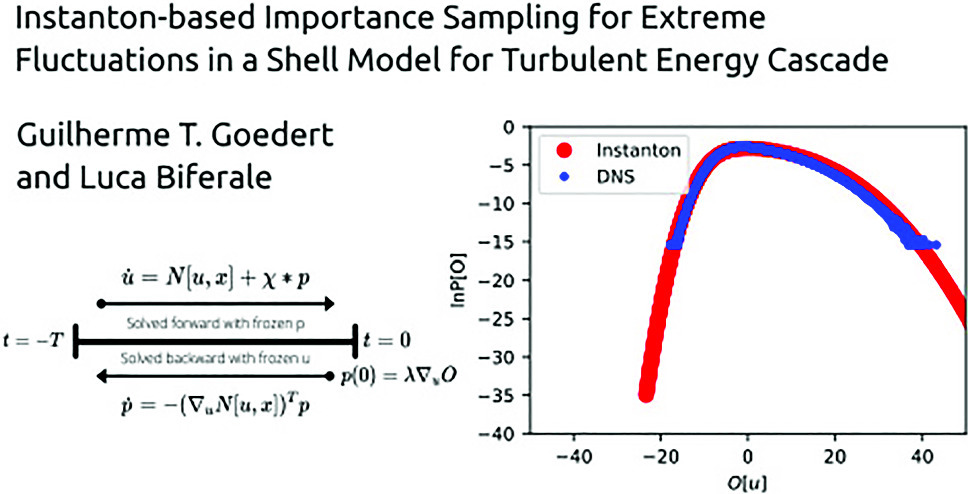https://doi.org/10.1140/epje/s10189-023-00392-6
Regular Article - Flowing Matter
Instanton-based importance sampling for extreme fluctuations in a shell model for turbulent energy cascade
1
School for Applied Mathematics, Getúlio Vargas Foundation, Praia de Botafogo, 190, 22250-900, Rio de Janeiro, Rio de Janeiro, Brazil
2
Department of Physics and INFN, University of Rome, Tor Vergata, Via della Ricerca Scientifica 1, 00133, Rome, Lazio, Italy
Received:
3
August
2023
Accepted:
2
December
2023
Published online:
21
December
2023
Many out-of-equilibrium flows present non-Gaussian fluctuations in physically relevant observables, such as energy dissipation rate. This implies extreme fluctuations that, although rarely observed, have a significant phenomenology. Recently, path integral methods for importance sampling have emerged from formalism initially devised for quantum field theory and are being successfully applied to the Burgers equation and other fluid models. We proposed exploring the domain of application of these methods using a shell model, a dynamical system for turbulent energy cascade which can be numerically sampled for extreme events in an efficient manner and presents many interesting properties. We start from a validation of the instanton-based importance sampling methodology in the heat equation limit. We explored the limits of the method as nonlinearity grows stronger, finding good qualitative results for small values of the leading nonlinear coefficient. A worst agreement between numerical simulations of the whole systems and instanton results for estimation of the distribution’s flatness is observed when increasing the nonlinear intensities.
Copyright comment Springer Nature or its licensor (e.g. a society or other partner) holds exclusive rights to this article under a publishing agreement with the author(s) or other rightsholder(s); author self-archiving of the accepted manuscript version of this article is solely governed by the terms of such publishing agreement and applicable law.
© The Author(s), under exclusive licence to EDP Sciences, SIF and Springer-Verlag GmbH Germany, part of Springer Nature 2023. Springer Nature or its licensor (e.g. a society or other partner) holds exclusive rights to this article under a publishing agreement with the author(s) or other rightsholder(s); author self-archiving of the accepted manuscript version of this article is solely governed by the terms of such publishing agreement and applicable law.





